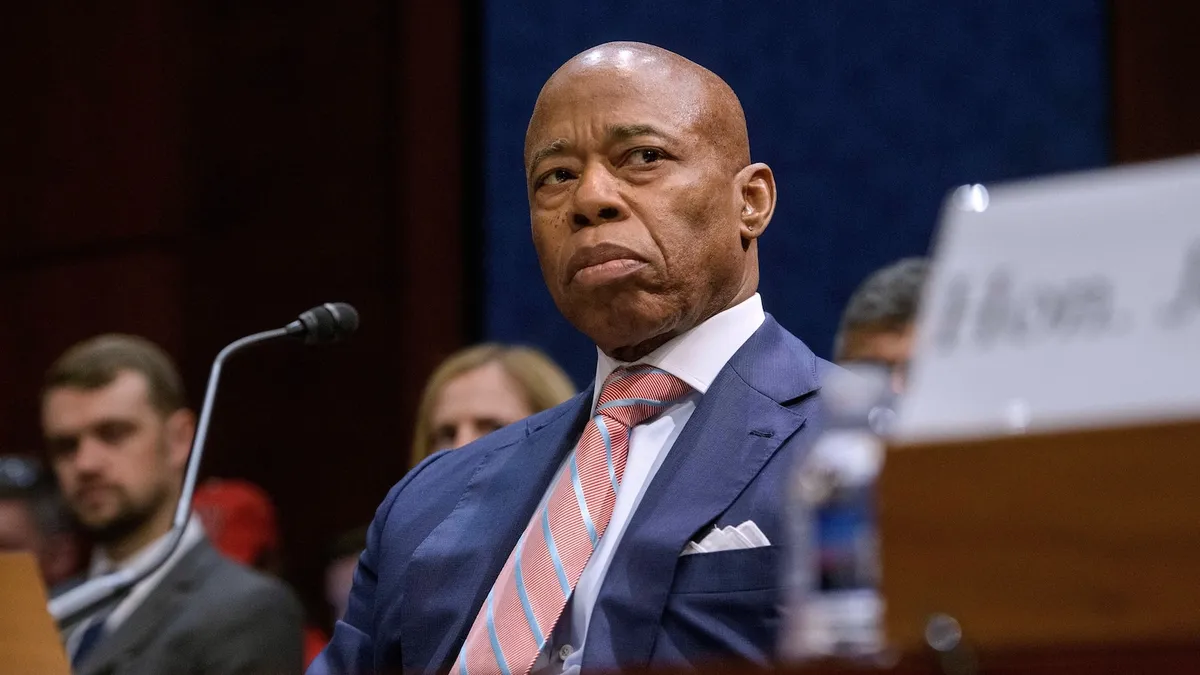
A federal judge in New York has officially dropped corruption charges against Mayor Eric Adams, but the outcome was not aligned with the interests of the Trump administration. Judge Dale Ho ruled to dismiss the case with prejudice, signaling that it cannot be revived in the future. The Justice Department had sought the dismissal to allow Adams to pursue his immigration agenda, preferring the case be dismissed without prejudice, which would have allowed for the possibility of re-filing in the future.
Mayor Eric Adams was indicted last year in the Southern District of New York on five counts related to an alleged long-standing conspiracy involving improper benefits, illegal campaign contributions, and an attempted cover-up. He has consistently pleaded not guilty to the charges. Judge Ho's decision did not support the Justice Department's preferred outcome, highlighting concerns over the potential implications of dismissing the case without prejudice.
In his ruling, Judge Ho expressed that dismissing the case without prejudice could create a perception that the mayor's freedom is contingent on his ability to align with the federal government's immigration priorities. This would imply that Adams might be more responsive to federal demands than the needs of his constituents. Ho stated, "That appearance is inevitable, and it counsels in favor of dismissal with prejudice." This reasoning underscores the importance of maintaining the integrity of public officials and the principle of equal justice under the law.
Following the ruling, a spokesperson from the Justice Department described the case against Adams as an example of political weaponization and a misuse of resources. "We are focused on arresting and prosecuting terrorists while returning the Department of Justice to its core mission of keeping Americans safe," the spokesperson added. Judge Ho's 78-page opinion dismantled the rationale presented by the DOJ for the dismissal, asserting that it was unprecedented for the government to dismiss charges against an elected official to facilitate federal policy goals.
Adams' attorney, Alex Spiro, expressed relief at the decision, stating, "The case against Eric Adams should have never been brought in the first place -- and finally today that case is gone forever." He emphasized that Adams has maintained his innocence from the beginning. Mayor Adams echoed these sentiments outside Gracie Mansion, affirming, "Let me be clear, as I've said all along, this case should have never been brought and I did nothing wrong." He expressed gratitude that the city could now focus on its future.
The dismissal of charges comes just ahead of the April 3 deadline for petitions for mayoral candidates to qualify for the June primary ballot. Adams has declared his intent to run as a Democrat, despite facing criticism for his interactions with the Trump administration, including attending the president's inauguration instead of participating in local Martin Luther King Day events. The decision to dismiss was influenced by the independent assessment of Paul Clement, a former solicitor general under the Bush administration, who was appointed by Judge Ho.
Amidst the case's developments, a contentious letter from acting U.S. Attorney Danielle Sassoon to U.S. Attorney General Pam Bondi suggested that key members of the DOJ were aware of a potential quid pro quo involving Adams' support for Trump's immigration policies. Following her resignation in protest, Sassoon and several other DOJ officials departed from their positions. Adams' attorney rejected the notion of any quid pro quo, stating, "The idea that there was a quid pro quo is a total lie. We offered nothing, and the department asked nothing of us."
The dismissal of corruption charges against Mayor Eric Adams marks a significant moment in New York's political landscape. With the case now permanently closed, Adams can direct his focus toward his policies and the upcoming election. The ruling also raises questions about the relationship between elected officials and federal authorities, reinforcing the need for transparency and integrity within the justice system.